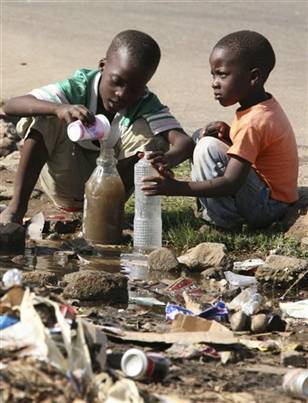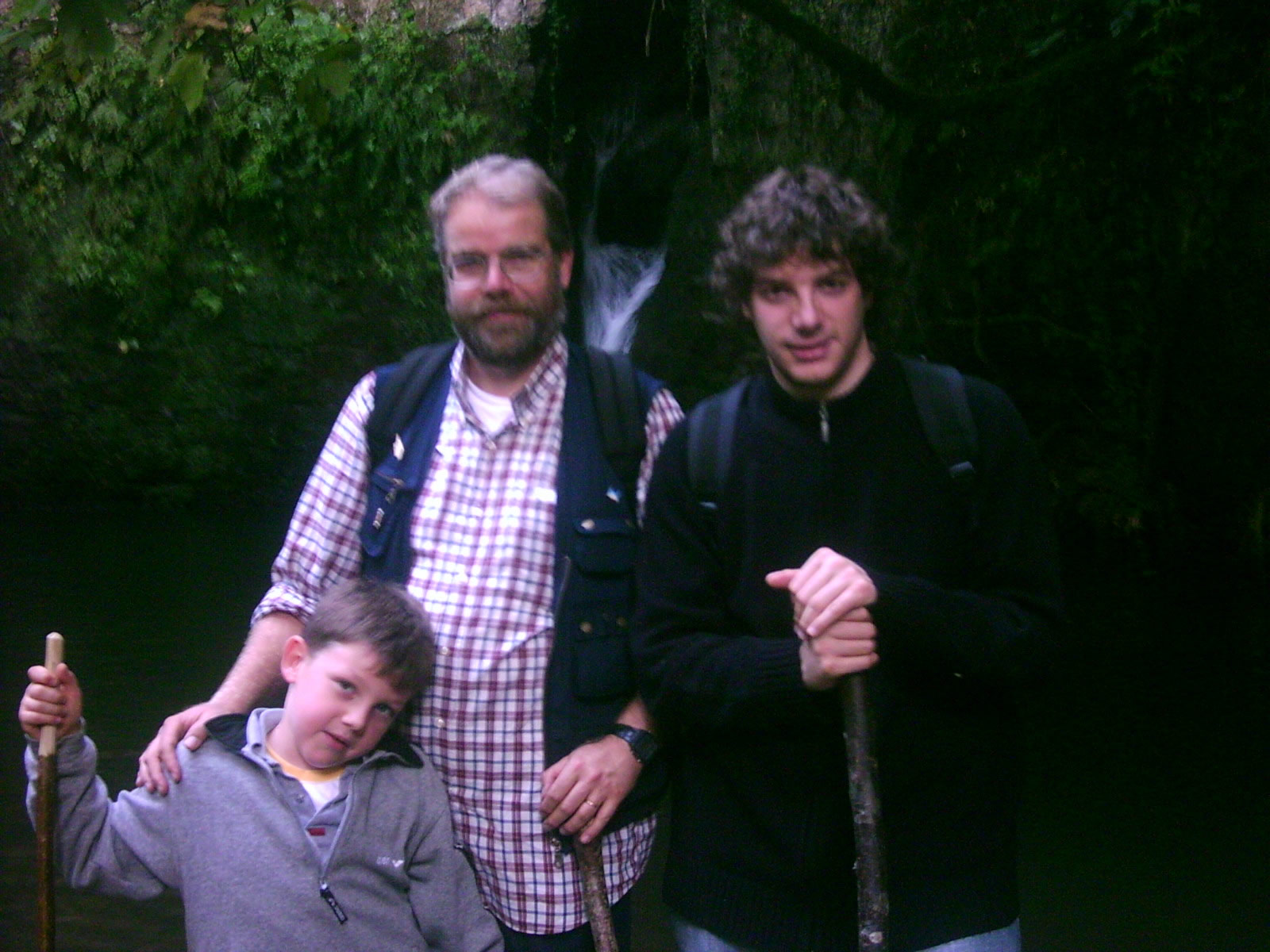Poor sanitation and water kill more than two million children annually
| SALUTE |
 A new series published today in leading medical journal Public Library of Science Medicine reveals that poor sanitation, water and hygiene not only lead to more than two million children dying annually, but also result in a massive global disease burden.
A new series published today in leading medical journal Public Library of Science Medicine reveals that poor sanitation, water and hygiene not only lead to more than two million children dying annually, but also result in a massive global disease burden.
Four papers released today in PLoS Medicine—the flagship medical journal of the open access publisher Public Library of Science— highlight how sanitation and water, along with better hygiene, are the “forgotten foundations of health”. The series asks how the opportunity to save so many lives is failing to attract the attention of the international health community.
The scale of this crisis and the burden it places on global health and development is ominous. Unsafe sanitation and drinking water, as well as hygiene, account for nearly 20 per cent of all child deaths in the world and at least 7 per cent of the total global disease burden. In 2010, almost one fifth of the world’s population still defecate in the open and 2.6 billion people do not have access to even a basic toilet.
This renewed focus on sanitation comes ahead of World Toilet Day on 19 November—an international day to raise awareness of the global sanitation crisis. The series also coincides with the launch of the SHARE Consortium, an initiative funded by the UK’s Department for International Development to undertake research to improve sanitation and hygiene in poor countries.
Professor Sandy Cairncross, Research Director of SHARE and lead author of the series, said: “For me, there is no greater indictment of our age than that we continue to allow millions of children to die from entirely preventable diseases. The centrality of sanitation and water and hygiene to health has been made clear in numerous international declarations, but sadly this has not translated into progress on the ground.”
Most of these diseases, including diarrhoea cholera and typhoid can easily be prevented with cheap and proven interventions, such as pit latrines and hand-washing with soap. Despite this, and according to the series, progress has been “painfully slow” in many developing countries. This series gives evidence and urges members of the health community, from international donors and UN agencies to developing country governments, to take immediate action to reduce this “devastating disease burden.”
Barbara Frost, Chief Executive of development organisation WaterAid, which is part of SHARE and co-authored the PLoS series said: “It is clear that with increased investment in water and sanitation we could significantly decrease child mortality. The lives of the world's poorest people are being threatened because of a blindspot when it comes to these basic human rights. "
The four papers emphasise the effectiveness of local solutions and the importance of health professionals working with counterparts from other sectors. The series issues a call for:
* An international commitment to universal access to hygiene, sanitation and water
* Better targeting of aid for sanitation and water to where it’s needed: at least half of all aid for sanitation and water to go to low-income countries
* All schools to be constructed with provision for every child to have access to safe hygiene, sanitation and water
The urgency of these actions is strongly emphasised, particularly as coverage will have to increase markedly to keep pace with rapid population growth in towns and cities.
““Children are dying every day from diseases such as diarrhoea, even though we know how to prevent them,” said Clarissa Brocklehurst, chief of Water and Sanitation for UNICEF. “We must work hand in hand - health professionals alongside engineers - to ensure that improvements in water supply, sanitation and hygiene reach everyone.”
“We can no longer stand by and ignore the crucial underlying role that these interventions play in health and development."
Key facts
* Diarrhoea kills more young children each year than HIV/AIDS, tuberculosis and malaria combined.
* 2.6 billion people do not have access to a basic toilet.
* 884 million people do not have access to safe drinking water.
* Millennium Development Goal 7 (MDG7) aims to halve the proportion of people without sustainable access to safe drinking water and basic sanitation by 2015. The world is on track to meet the MDG target for water but is seriously off track for sanitation.
* Meeting MDG7 on water and sanitation would cost an estimated $10 billion every year until 2015 (about as much as Europeans spend annually on ice cream).
* One gram of human faeces can contain 10,000,000 viruses, 1,000,000 bacteria, 1,000 parasite cysts and 100 parasite eggs.
SHARE Consortium is a research programme led by the London School of Hygiene and Tropical Medicine with partners across Africa and South Asia that will identify solutions to this crisis.
* * *
The 4 Papers:
http://www.ploscollections.org/article/browseIssue.action?issue=info:doi/10.1371/issue.pcol.v07.i11
* * *
Addis Abeba - III Settimana Africana dell'Acqua:
http://www.climaefinanza.it/?p=408
Sull'argomento:
| < Prec. | Succ. > |
|---|







 Survival: La lotta contro il riscaldamento globale devasta i popoli indigeni
Survival: La lotta contro il riscaldamento globale devasta i popoli indigeni  Copenhagen meno 30
Copenhagen meno 30


